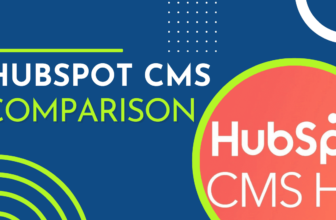
Are you looking for information on starting an affiliate marketing business? This guide will show you how to choose a niche, create content, and join affiliate programs, all essential steps in starting a affiliate marketing business. Follow these steps, and you’ll be ready to start earning through affiliate marketing.
Key Takeaways
- Choosing a niche that interests you and has market demand is crucial for staying motivated and creating content that resonates with your audience.
- Establishing your online presence through a website, YouTube channel, or social media platforms is essential for creating high-quality content and engaging your target audience.
- Tracking your performance with tools like Google Analytics and affiliate dashboards is vital for optimizing your strategies and driving more successful marketing efforts.
Starting a Affiliate Marketing Business: A Simple Step-by-Step Guide

Embarking on an affiliate marketing business requires several critical steps. If adhered to properly, these steps can pave your way to success. To start affiliate marketing, the first step is to select a niche that interests you and has market demand. This focus will help you stay motivated and create content that resonates with your audience. Once you’ve chosen a niche, joining an affiliate network is the next logical step. These networks act as intermediaries between you and brands, making it easier to find relevant products to promote.
Once you’ve joined an affiliate network, the next step is to establish your online presence. This could be through a website, YouTube channel, or social media platforms. Creating high-quality content that attracts and engages your target audience is crucial. Finally, track your performance and adjust your strategies as needed. By following these steps, you’ll be well on your way to becoming a successful affiliate marketer.
Introduction
While affiliate marketing offers a gateway to financial independence, it necessitates commitment and a readiness to learn. Success doesn’t happen overnight; it’s a journey that demands time and effort. By committing to learning best practices and implementing them consistently, you can build a sustainable and profitable business.
The minimal initial investment required is one of the attractive features of affiliate marketing. While there may be some upfront costs, it’s possible to start with minimal or no financial investment. This makes it an accessible option for many people looking to make money online. The ultimate goal of affiliate marketing is to monetize your audience through affiliate links, turning your passion into profit.
Imagine the freedom of working from anywhere, setting your own schedule, and earning income by promoting products you love. This guide will provide you with the tools and knowledge needed to embark on this exciting journey. With dedication and the right strategies, you can transform your affiliate marketing efforts into a successful business.
Understanding Affiliate Marketing

Promoting products or services through affiliate marketing is an effective method to generate income. It involves three main parties: the seller, the affiliate marketer, and the consumer. The seller provides the product, the affiliate promotes it, and the consumer makes the purchase.
This win-win model benefits all parties involved, allowing businesses to reach wider audiences and affiliates to earn commissions.
What is Affiliate Marketing?
In involved affiliate marketing, a type of performance-based marketing, affiliates receive commissions for promoting products or services through an affiliate marketing program. This business model is low-risk and easy to scale, making it an attractive option for online creators and entrepreneurs. By creating promotional content, affiliates can drive traffic to the seller’s site and earn a commission on any resulting sales, proving that affiliate marketing works.
One of the key benefits of affiliate marketing is the potential for passive income. By creating evergreen content that continues to generate traffic and sales over time, affiliates can earn money even when they’re not actively working. This flexibility and independence make affiliate marketing a popular choice for those looking to build an online business.
How Does Affiliate Marketing Work?
Three main players are involved in affiliate marketing:
- The seller, or merchant, is the vendor who has a product to market.
- The affiliate acts as a salesperson, promoting the seller’s products through various marketing channels.
- The consumer plays a crucial role by purchasing the product through the affiliate’s marketing efforts.
Tracking links are the backbone of affiliate marketing. These unique URLs allow affiliates to earn commissions by tracking sales made through their recommendations. When a consumer clicks on an affiliate link, a cookie is stored on their computer, ensuring that the affiliate receives credit for the sale even if the purchase is made later. This system benefits both brands and affiliates, as businesses pay commissions only for successful sales.
Affiliates can promote products through a variety of channels, including websites, social media, and email lists. By leveraging these platforms, affiliates can reach a wide audience and drive traffic to their affiliate links. This reciprocal model ensures that both the seller and the affiliate benefit from the partnership.
Why Start an Affiliate Marketing Business?
Launching an affiliate marketing business brings with it multiple benefits:
- It’s a low-cost, scalable opportunity that allows you to earn money online without the need for significant upfront investment.
- By promoting products you believe in, you can earn commissions on sales without having to own or handle the products yourself.
- This minimizes risk and makes it an accessible option for many people.
Another benefit of affiliate marketing is its flexibility. Here are some key advantages:
- You can work from anywhere with an internet connection
- You can set your own schedule
- You have the freedom to choose what you promote
- There is potential to earn significant income
- You can scale your business by promoting multiple products
Affiliate marketing is a lucrative and appealing option for many because of these reasons.
Choosing Your Niche

Choosing an appropriate niche is key to the success of your affiliate marketing campaigns. A niche is a specific segment within a larger market, distinguished by its unique attributes. It caters to a specialized audience and often offers tailored products or services. By focusing on a specific niche, you can establish yourself as an authority, attract a dedicated audience, and find suitable affiliate programs to promote.
Conducting Market Research
In-depth market research is crucial to pinpoint potentially successful niches. Tools like Google Trends and keyword research can help you understand market demand and competition levels. By targeting a growing audience, you increase your chances of attracting potential customers and achieving higher engagement.
Assessing the competition is also crucial. A niche with no competition may not be viable, while a highly competitive niche can be challenging to break into. Using keyword research tools can generate content ideas and help you identify relevant topics to cover in your niche.
Identifying Your Interests and Expertise
Opting for a niche that coincides with your interests and expertise is critical for sustained success. When you’re passionate about a topic, creating content becomes more enjoyable and authentic. This genuine interest will resonate with your audience, leading to better engagement and trust.
Selecting a niche that you enjoy ensures that you remain committed and motivated. It’s easier to create high-quality content consistently when you’re interested in the subject matter. By aligning your niche with your personal interests, you can build a successful affiliate marketing business that you love.
Setting Up Your Affiliate Marketing Platform

Establishing your affiliate marketing platform is an essential phase in your journey. Whether you choose to build a website, start a YouTube channel, or leverage social media platforms, having a solid foundation is essential for success. Each platform offers unique benefits and challenges, and selecting the one that best suits your strengths and audience is key.
Building a Website
A website provides total control of your content and branding, which makes it a prized asset for affiliate marketers. With an affiliate website, you can leverage search engine optimization (SEO) to gain traction and attract organic traffic. Purchasing a domain name through hosting sites like Bluehost or GoDaddy is the first step in building your site.
User experience is crucial for retaining visitors. Ensuring your site is mobile-friendly and has fast loading speeds will enhance the overall experience for your audience. Optimizing your website for conversions before starting your affiliate marketing efforts will ensure it can handle increased traffic and sales.
Starting a YouTube Channel
Establishing a YouTube channel can serve as a potent strategy to connect with a broader audience and advertise affiliate products. Consistently uploading high-quality videos will help you build a loyal subscriber base who trust your recommendations. Using eye-catching thumbnails and titles can increase the click-through rate of your videos, driving more traffic to your affiliate links.
Incorporating affiliate links in your video descriptions and within the videos themselves can drive conversions. YouTube’s visual format allows you to demonstrate products and provide valuable insights, making it an excellent platform for affiliate marketing.
Leveraging Social Media Platforms
Various opportunities to direct traffic to your affiliate links and interact with your audience are presented by social media platforms. Platforms like Instagram, TikTok, and Twitter are popular choices for affiliate marketers. Creating compelling social media posts that link back to your website or other owned assets can help you build your brand and drive traffic.
It’s essential to comply with the guidelines of each social media channel to avoid any issues with your ads. By participating in communities and running advertising campaigns, you can increase your reach and attract more potential customers to your affiliate site.
Finding and Joining Affiliate Programs

Locating and joining affiliate programs is a vital phase in your affiliate marketing venture. These programs connect you with brands and products that align with your niche, allowing you to earn commissions from sales.
Whether you choose to join popular affiliate networks or sign up directly with an affiliate program, selecting the right programs is essential for your success.
Popular Affiliate Networks
Some popular affiliate networks include:
- Amazon Associates: one of the most well-known and reliable affiliate networks, offering a wide range of products for promotion
- ShareASale: provides access to thousands of merchants, offering diverse marketing options
- CJ Affiliate: offers real-time insights and access to a wide range of merchants
These networks are excellent starting points for beginners and offer various opportunities for affiliate marketing.
Joining these networks simplifies the process of finding suitable affiliate programs and building your network. By leveraging the tools and resources provided by these networks, you can track your performance, generate referral links, and monitor your earnings and payouts.
Evaluating Affiliate Programs
Choosing the suitable affiliate programs requires the assessment of multiple crucial elements. Commission rates are crucial, as they determine how much you earn for each sale. It’s also important to analyze the cookie duration, which affects how long you will be credited for a sale after a user clicks your affiliate link.
Relevance to your audience is another critical factor. Promoting products that align with your niche and audience’s interests will lead to better conversions. Carefully reviewing the affiliate agreements and understanding the terms and conditions will help you avoid unfavorable terms and ensure a successful partnership.
Signing Up and Getting Approved
Signing up for affiliate programs involves submitting applications and getting approved by the networks or brands. To increase your chances of approval, ensure your platform aligns with the network’s content guidelines and quality standards. Highlighting your website’s traffic, engagement, and relevance to the products you wish to promote can also improve your chances of acceptance.
For niche products, consider reaching out directly to brands and proposing a partnership. Introduce yourself, explain your platform, and discuss how you can mutually benefit from the collaboration. Building strong relationships with affiliate partners can lead to more opportunities and higher earnings.
Creating High-Quality Affiliate Content
The foundation of a prosperous affiliate marketing enterprise is the creation of high-quality content. Consistent, engaging, and valuable content will attract and retain your audience, driving traffic to your affiliate links and increasing conversions.
Whether it’s through product reviews, tutorials, or comparison posts, the quality of your content will determine your success.
Writing Product Reviews
Product reviews are a powerful tool in affiliate marketing. They provide unbiased opinions about products, helping potential buyers make informed decisions. Writing honest and well-crafted reviews builds trust with your audience and influences their purchasing decisions. Including affiliate links within your reviews will drive traffic to the products and earn you commissions.
To write effective product reviews, follow these steps:
- Purchase and test the products yourself.
- Provide detailed insights, highlighting both pros and cons.
- Use high-quality images to enhance your content.
- Be authentic and honest in your review to resonate with your audience and encourage trust in your recommendations.
Creating Tutorials and How-To Guides
Tutorials and how-to guides are excellent for demonstrating the use and benefits of affiliate products. By providing practical, step-by-step instructions, you can help your audience achieve specific goals and understand the value of the products you’re promoting. High-quality tutorials establish you as an authority in your niche, building trust and credibility.
Incorporate visuals such as screenshots, diagrams, and videos to enhance the effectiveness of your tutorials. Use clear and concise language to ensure your instructions are easy to follow. Regularly updating your tutorials to reflect the latest information and trends will keep your content relevant and useful.
Using Comparison Posts
Comparison posts are valuable for helping users make informed purchasing decisions. By evaluating two or more products and highlighting their features, benefits, and drawbacks, you provide your audience with the information they need to choose the best option. These posts can increase conversion rates as they target viewers who are actively deciding to purchase.
For effective comparison posts, include comparison charts to showcase key characteristics of the products. Use detailed examples and real-life scenarios to illustrate the differences and advantages of each product. This thorough approach will build trust with your audience and drive more traffic to your affiliate links.
Driving Traffic to Your Affiliate Site
Directing traffic to your affiliate site is crucial for making sales and earning commissions. Diversifying your traffic sources will reduce dependency on a single platform and mitigate risks.
Utilizing free and paid strategies can help you reach a wider audience and increase your site’s visibility.
Search Engine Optimization (SEO)
SEO serves as a potent instrument for directing organic traffic to your affiliate site. By optimizing your content for search engines, you can rank higher in search results and attract consistent, passive traffic. Ignoring SEO basics can make your content difficult to find, so it’s crucial to understand and implement effective SEO strategies.
Keyword research is the foundation of SEO. By targeting buyer intent keywords, you can attract users who are ready to make a purchase. Optimizing your content with relevant keywords, meta descriptions, and internal links will improve your site’s visibility and drive more traffic.
Social Media Marketing
Social media platforms provide abundant opportunities for guiding traffic to your affiliate site. Platforms like:
- TikTok
allow you to reach people who are looking to buy. Regular interaction with your audience through comments and social media posts can enhance loyalty and trust.
While social media should not be relied upon as the primary platform for your business, it can significantly boost your marketing efforts. By creating engaging content and participating in relevant communities, you can drive traffic to your affiliate links and increase your reach.
Email Marketing
Email marketing serves as a potent instrument for advertising affiliate products and directing traffic to your site. Building an email list allows you to connect with your audience anytime and deliver tailored messages directly to their inboxes. Sharing affiliate links through email can help you make money when subscribers click on the links and make purchases.
Offering something valuable, like a free eBook or an email course, can persuade readers to sign up for your email list. Creating a series of emails to promote a product can effectively move prospects towards a buying decision. Including valuable content such as tips, training, and exclusive offers will keep your audience engaged and encourage them to click on your affiliate links.
Tracking and Analyzing Performance
Monitoring and evaluating your performance is vital to comprehend which strategies are effective and to make the required modifications. Proper tracking provides visibility into your efforts, helping you make more money faster and with fewer pieces of content.
You can increase your affiliate income by constantly optimizing your marketing efforts. This will help you achieve better results.
Using Google Analytics
Google Analytics is a vital tool for tracking your website’s performance. By understanding your audience and evaluating the effectiveness of your affiliate marketing efforts, you can make informed decisions and improve your strategies. To set up Google Analytics, follow these steps:
- Create an account
- Add your website
- Generate a tracking ID
- Add the tracking code to your website’s header to start collecting data.
The Audience Overview report in Google Analytics helps you track traffic metrics like the number of visitors, session duration, and bounce rate. Setting up goals allows you to measure specific actions users take, such as completing a purchase or signing up for a newsletter. Analyzing the performance of your affiliate links will help you determine which sources drive the most valuable traffic.
Affiliate Dashboards and Tools
Affiliate dashboards provide a comprehensive look at your campaign performance, generating referral links, and monitoring earnings and payouts. Key metrics to track include:
- Clicks
- Trials
- Sales
- Commissions
Understanding these metrics will help you optimize your strategies and improve your results.
Specialized affiliate marketing tools offer real-time data, reporting features, and analytics to track sales and commissions. Setting up goals in Google Analytics can help measure affiliate conversions and track the success of your marketing efforts. By leveraging these tools, you can effectively manage and optimize your campaigns.
Common Mistakes to Avoid
Steering clear of common errors is critical for establishing a sustainable affiliate marketing enterprise. Prioritizing selling over helping, publishing low-quality content, and ignoring site speed can undermine your efforts and credibility.
Understanding these pitfalls and learning how to avoid them will help you maintain trust and achieve long-term success.
Overpromising Products
Overhyping products can lead to customer dissatisfaction and loss of trust. Being honest about product limitations helps build long-term credibility with your audience. By maintaining honesty and transparency, you can establish a loyal following that values your recommendations.
To avoid overpromising, focus on providing accurate and balanced reviews. Highlight both the pros and cons of the products you promote, and set realistic expectations for your audience. This approach will enhance your credibility and encourage trust in your recommendations.
Ignoring FTC Regulations
Complying with FTC regulations is crucial for maintaining transparency and avoiding legal penalties. Failing to disclose affiliate links can damage your reputation and result in legal consequences. Including clear and conspicuous affiliate disclosures near your endorsements will ensure transparency and build trust with your audience.
To ensure compliance, always disclose your affiliate relationships and inform your audience that you earn a commission from purchases made through your links. This transparency will enhance your credibility and prevent any potential legal issues.
Neglecting Audience Engagement
Engaging with your audience is vital for building trust and encouraging repeat visits to your site. Failing to engage with your audience can lead to decreased trust and lower conversion rates. By interacting with your audience on social media, responding to comments, and addressing their questions, you can enhance loyalty and trust.
Building a community around your brand and fostering relationships with your audience will encourage them to visit your site and trust your recommendations. This engagement will drive more traffic to your affiliate links and increase your conversions.
Advanced Affiliate Marketing Strategies
Proficient affiliate marketers can elevate their business to new heights through advanced strategies. Building an affiliate funnel, leveraging paid advertising, and partnering with influencers are powerful tactics that can significantly boost your affiliate sales and income.
Building an Affiliate Funnel
An affiliate funnel is a process that guides users from awareness to purchase by providing targeted information and offers at each stage of their buyer’s journey. By identifying drop-off points and improving processes, you can enhance the effectiveness of your marketing efforts and increase conversions.
Sending leads to affiliate landing pages allows you to:
- Offer information specific to where prospects are in their buyer’s journey
- Ensure that your audience receives the right information at the right time
- Ultimately guide them towards making a purchase.
Leveraging Paid Advertising
Paid advertising can significantly boost your affiliate sales by attracting targeted traffic to your promotional content. Testing different PPC models, such as pay per sale, pay per click, and pay per lead, can help determine the most cost-effective strategy.
Running paid campaigns during peak shopping seasons and offering special discounts or coupons can effectively attract deal-seeking customers and boost sales. By leveraging paid advertising, you can scale your growth and reach a wider audience.
Partnering with Influencers
Partnering with influencers can add immense value to your affiliate marketing efforts. Influencers have the power to:
- Influence purchasing decisions
- Drive organic traffic to your promotional content
- Reach a targeted audience that trusts and engages with their recommendations
By collaborating with niche influencers, you can maximize the impact of your affiliate marketing strategy.
Look for influencers who align with your brand and have a genuine connection with their audience. Authenticity and integrity are key factors in successful influencer partnerships. By working with influencers, you can enhance your brand’s visibility and drive more traffic to your affiliate links.
Summary
In summary, starting an affiliate marketing business involves selecting a niche, joining affiliate programs, building an online presence, creating high-quality content, driving traffic, and tracking performance. By following these steps and avoiding common mistakes, you can build a successful and sustainable affiliate marketing business.
Remember, success in affiliate marketing requires dedication, continuous learning, and a willingness to adapt your strategies. With the right approach, you can transform your affiliate marketing efforts into a thriving business that offers financial freedom and flexibility. Start your journey today, and unlock the potential of affiliate marketing.
Frequently Asked Questions
How do I choose the right niche for my affiliate marketing business?
Choose a niche that aligns with your interests and expertise, conduct market research, and assess the competition to ensure the niche has a viable market. Happy niche hunting!
What platforms can I use for affiliate marketing?
You can use websites, YouTube channels, and social media platforms like Instagram, TikTok, and Twitter for affiliate marketing. Choose the platform that aligns with your strengths and target audience for the best results.
How do I drive traffic to my affiliate site?
To drive traffic to your affiliate site, utilize strategies such as SEO, social media marketing, and email campaigns. Diversifying your traffic sources will reduce reliance on a single platform and minimize risks. Start implementing these methods today to increase your website traffic and potential sales.
What are some common mistakes to avoid in affiliate marketing?
Start by learning the basics, choosing a niche, and joining reputable affiliate programs. This will lay a strong foundation for your career in affiliate marketing.
Ready to start your affiliate marketing business and become an affiliate marketer? Why not join an affiliate marketing training course. Learning from a top affiliate marketer will give you the edge with step-by-step guidance, and insider secrets from 7 figure earning industry experts. Check out our Top 4 Best Affiliate Marketing Training Programs here.
84






